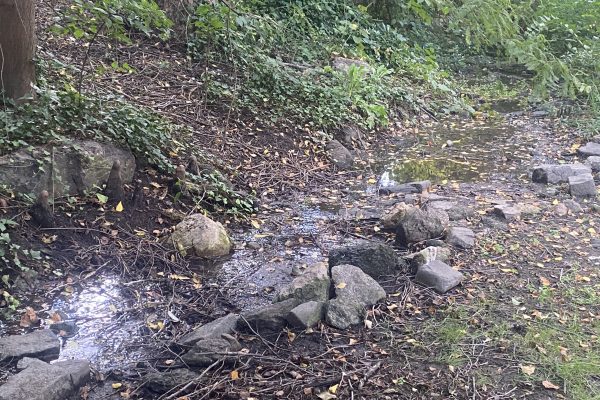Each year, we construct beautiful dwellings for Sukkot. We intentionally create temporary, holy spaces. We invite the presence of honored guests, the ushpizin, seven prophets, patriarchs and kings of old. We invite the ushpizot, seven women prophets named in the Talmud. Some include the matriarchs. Some invite men and women from history.
This meditation for taking down a sukkah is meant to slow down the process, briefly, so that we disassemble it with intention, inviting the holiness of the space that we created into our lives.
Farewell Ushpizot, Ushpizin
Farewell, Ushpizot.
Farewell, Ushpizin.
You have brought blessing and wisdom
To our sukkah – this tabernacle of joy –
As our honored guests.
Watch over us as we journey on.
Stay with us in our hearts.
Farewell, Ushpizot:
Sarah and Miriam,
Devorah and Hannah,
Avigail, Huldah and Esther.
Farewell, Ushpizin:
Abraham and Isaac,
Jacob and Joseph,
Moses, Aaron and David.
Farewell to all who have graced this space
With your warmth and friendship.
.למען אחי ורעי, אדברה-נא שלום בך
Lma-an akhai vrei-ai, adab’rah na shalom bakh.
For the sake of my companions and friends,
I will speak of peace. (Ps. 122:8)
Taking down this sukkah,
We take the holiness into ourselves,
Dreaming of a time
When G-d’s sukkat shalom –
G-d’s tabernacle of peace –
Will cover the earth.
Taking down this sukkah,
We pledge to carry holiness,
Love and light,
Peace and thanksgiving,
Into our lives and into the world.
Postscript: In using this meditation, adapt the names mentioned to those you invited into your sukkah. The meditation is my response to the unceremonious way that sukkot seem to be disassembled. What happens to the holiness created? Does it disparate? And what about our honored guests? We invite them in, but don’t have the courtesy to say farewell?
© 2018 Alden Solovy and tobendlight.com.
Photo Source: 6SqFt











